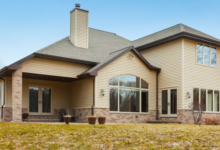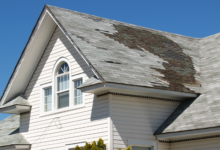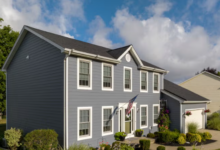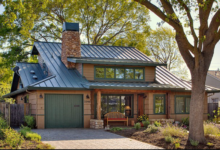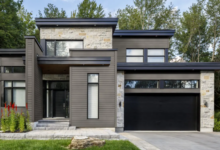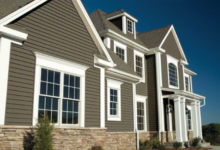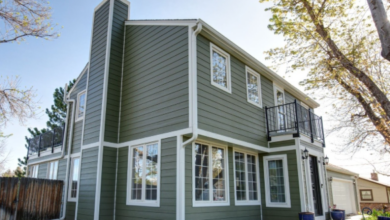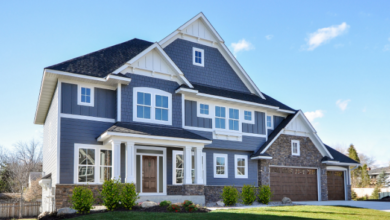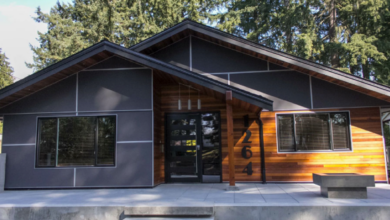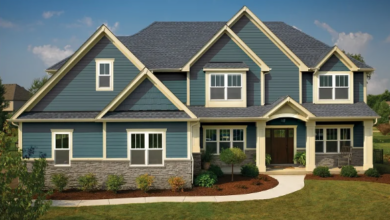Affordable House Siding Options – Discover the best affordable house siding options! Learn about materials, benefits, costs, and where to buy. Transform your home without breaking the bank.
Affordable House Siding Options: Transform Your Home on a Budget
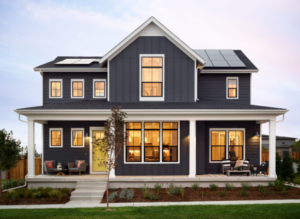
-
Professional Home Siding ServicesFebruary 26, 2025
-
House Siding Insurance Claims: Guide to Protect Your HomeFebruary 26, 2025
-
Best Places to Buy Siding Online: Top Suppliers & DealsFebruary 26, 2025
-
Low-Maintenance Siding Options for Your HomeFebruary 26, 2025
-
Fire-Resistant Siding for Homes: Protect Property with Top ChoicesFebruary 26, 2025
-
Aluminum Siding vs Vinyl Siding: Comparison & Top ProductsFebruary 26, 2025
Finding the perfect siding for your home can be a daunting task, especially when you’re on a budget. You want something that looks great, protects your home from the elements, and doesn’t break the bank.
Fortunately, there are many affordable house siding options available today. This article will guide you through the best choices, their benefits, and where to find them.
Why Affordable House Siding Options Matters
- Cost-Effectiveness: Saving money is a top priority for many homeowners.
- Increased Curb Appeal: Enhance your home’s appearance without overspending.
- Protection: Shield your home from weather damage.
- Energy Efficiency: Some siding options can improve insulation.
Informational: Exploring Affordable House Siding Options
Let’s delve into the most popular affordable siding materials:
1. Vinyl Siding
- Description: Vinyl siding is one of the most popular and affordable options. It’s made from PVC (polyvinyl chloride) and is known for its durability and low maintenance.
- Benefits:
- Cost-effective.
- Easy to install.
- Resistant to moisture and pests.
- Available in a wide range of colors and styles.
- Considerations:
- Can fade over time.
- May crack in extreme cold.
2. Fiber Cement Siding
- Description: Fiber cement siding is made from a mixture of cement, sand, and cellulose fibers. It’s known for its durability and resistance to fire and pests.
- Benefits:
- Long-lasting.
- Resistant to rot and insects.
- Can mimic the look of wood.
- Fire resistant.
- Considerations:
- Higher initial cost than vinyl.
- Requires professional installation.
- Heavier material.
3. Engineered Wood Siding
- Description: Engineered wood siding is made from wood fibers that are bonded together with resins. It offers the look of real wood at a lower cost.
- Benefits:
- More affordable than natural wood.
- Resistant to rot and insects.
- Easy to install.
- Considerations:
- Requires regular maintenance.
- Can be susceptible to moisture damage if not properly sealed.
4. Metal Siding
- Description: Metal siding, often made from aluminum or steel, is known for its durability and longevity.
- Benefits:
- Extremely durable.
- Fire resistant.
- Low maintenance.
- Considerations:
- Can dent easily.
- Higher initial cost.
5. Brick Veneer
- Description: Brick veneer provides the aesthetic of brick at a lower cost, as it’s a thin layer of brick applied over another siding material.
- Benefits:
- Classic look.
- Durable.
- Increases home value.
- Considerations:
- Higher installation cost.
- Requires skilled labor.
Benefit: Technological Advantages
Modern siding options offer several technological advantages:
- Advanced Coatings: Many sidings now feature advanced coatings that provide UV protection, preventing fading and extending the lifespan of the siding.
- Improved Insulation: Some siding options, like insulated vinyl siding, can significantly improve your home’s energy efficiency, reducing heating and cooling costs.
- Moisture Barriers: Integrated moisture barriers prevent water damage, reducing the risk of rot and mold growth.
- Easy Maintenance: Many sidings are designed for easy cleaning and require minimal upkeep, saving you time and effort.
Real-World Product Examples
Let’s look at some specific products and their features:
1. Ply Gem Vinyl Siding
- Description: Ply Gem offers a wide range of vinyl siding options with various styles and colors. Their products are known for their durability and low maintenance.
- Features:
- Wide color selection.
- Various textures and styles.
- Limited lifetime warranty.
- Website: Ply Gem Vinyl Siding
2. James Hardie Fiber Cement Siding
- Description: James Hardie is a leading manufacturer of fiber cement siding. Their products are known for their durability, fire resistance, and ability to mimic the look of wood.
- Features:
- HardieZone® system for climate-specific performance.
- ColorPlus® Technology for baked-on color.
- 50-year limited warranty.
- Website: James Hardie Siding
3. LP SmartSide Engineered Wood Siding
- Description: LP SmartSide offers engineered wood siding that is designed to withstand harsh weather conditions. It’s known for its durability and ease of installation.
- Features:
- SmartGuard® process for rot and insect resistance.
- Pre-primed and ready to paint.
- 50-year limited warranty.
- Website: LP SmartSide Siding
4. ABC Seamless Steel Siding
- Description: ABC Seamless provides seamless steel siding that is custom-fit to your home, eliminating seams and providing superior protection.
- Features:
- Seamless design.
- Durable steel construction.
- Variety of colors and styles.
- Website: ABC Seamless Siding
5. Foundry Specialty Siding
- Description: Foundry Specialty Siding creates unique polymer siding with a rustic look.
- Features:
- Unique shake and shingle profiles.
- Fade resistant.
- Limited lifetime warranty.
- Website: Foundry Siding
Product Comparison Table
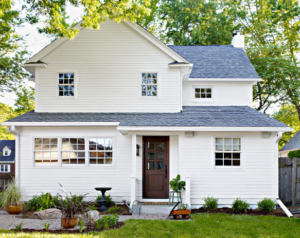
| Feature | Ply Gem Vinyl Siding | James Hardie Fiber Cement | LP SmartSide Engineered Wood | ABC Seamless Steel | Foundry Specialty Siding |
|---|---|---|---|---|---|
| Usecase | Cost effective, easy install | Durable, fire resistant | Wood look, rot resistant | Durable, seamless protection | Unique look, low maintenance |
| Pros | Affordable, low maintenance, wide color selection | Durable, fire resistant, mimics wood | Affordable wood look, easy install, rot resistant | Extremely durable, seamless, low maintenance | Unique looks, fade resistant |
| Cons | Can fade, may crack in extreme cold | Higher initial cost, heavy, professional install | Requires maintenance, susceptible to moisture if not sealed | Can dent, higher initial cost | limited style options |
| Price | Low to medium | Medium to high | Medium | High | Medium |
| Features | Various styles, lifetime warranty | HardieZone, ColorPlus, 50-year warranty | SmartGuard, pre-primed, 50-year warranty | Custom fit, seamless, variety of colors | Unique profiles, fade resistant, lifetime warranty |
Benefit: Using Specific Products
- Ply Gem Vinyl Siding: Ideal for homeowners seeking cost-effective and low-maintenance siding. Its wide range of colors and styles allows for customization to match any home’s aesthetic.
- James Hardie Fiber Cement Siding: Perfect for those who prioritize durability and longevity. Its fire resistance and ability to mimic wood make it a premium choice.
- LP SmartSide Engineered Wood Siding: A great option for homeowners who want the look of wood without the high cost and maintenance. Its SmartGuard technology ensures resistance to rot and insects.
- ABC Seamless Steel Siding: Best for those who want maximum protection and a seamless appearance. Its durability and custom fit make it a long-lasting investment.
- Foundry Specialty Siding: Ideal for those who want a unique, rustic look. Its polymer construction ensures low maintenance and fade resistance.
Transactional: Where to Buy and How Much
- Local Home Improvement Stores: Stores like Home Depot and Lowe’s carry a wide selection of siding materials.
- Siding Suppliers: Specialized siding suppliers offer a broader range of products and expert advice.
- Online Retailers: Websites like Amazon and specialized online stores sell siding materials.
- Professional Installers: Many siding contractors offer both materials and installation services.
Price Considerations:
- Vinyl Siding: Prices range from $3 to $8 per square foot installed.
- Fiber Cement Siding: Prices range from $5 to $13 per square foot installed.
- Engineered Wood Siding: Prices range from $4 to $10 per square foot installed.
- Metal Siding: Prices range from $6 to $15 per square foot installed.
- Brick Veneer: Prices range from $8 to $18 per square foot installed.
How to Buy:
- Research: Determine the best siding material for your needs and budget.
- Get Quotes: Contact multiple suppliers and installers for quotes.
- Check Reviews: Read reviews and testimonials to ensure quality.
- Verify Warranties: Ensure the product and installation have adequate warranties.
- Place Order: Once you’ve chosen a supplier, place your order and schedule installation.
Example Purchase Links (Hypothetical)
- Buy Vinyl Siding: Click Here to Shop Vinyl Siding (This is a general link, as direct product links change often)
- Find Fiber Cement Siding: Find James Hardie Near You (James Hardie directs you to local professionals)
Usecase: Solving Homeowner Problems
Affordable house siding options solve several common homeowner problems:
- Outdated Appearance: Siding can dramatically improve the curb appeal of an older home.
- Weather Damage: Protect your home from rain, wind, and sun damage.
- High Energy Bills: Insulated siding can improve energy efficiency and reduce costs.
- Maintenance Issues: Low-maintenance siding reduces the need for frequent repairs and painting.
- Pest Infestations: Some siding materials are resistant to insects and pests.
How to Buy and Where to Buy (Detailed)
- Local Home Improvement Stores:
- Visit stores like Home Depot, Lowe’s, or Menards.
- Browse their selection of siding materials.
- Consult with sales representatives for advice.
- Purchase materials and schedule delivery.
- Siding Suppliers:
- Search for specialized siding suppliers in your area.
- Visit their showrooms to see samples.
- Get expert advice on the best siding options.
- Obtain detailed quotes for materials and installation.
- Online Retailers:
- Browse online marketplaces like Amazon or specialized online stores.
- Read product descriptions and customer reviews.
- Compare prices and features.
- Place your order and arrange for delivery.
- Professional Installers:
- Search for licensed and insured siding contractors.
- Request on-site consultations and estimates.
- Review their portfolio and customer testimonials.
- Sign a contract and schedule installation.
- Directly from Manufacturers:
- Some manufacturers, like James Hardie, will connect you to certified installers.
- This ensures you get proper installation and warranty protection.
Frequently Asked Questions (FAQ)
1. What is the most affordable house siding option?
- Vinyl siding is generally the most affordable option, offering a balance of cost-effectiveness and durability.
2. How much does it cost to install siding on a 1,500-square-foot house?
- The cost varies depending on the material. Vinyl siding might cost $4,500 to $12,000, while fiber cement could range from $7,500 to $19,500.
3. Can I install siding myself?
- While some siding types like vinyl can be DIY-friendly, others like fiber cement require professional installation due to their weight and complexity.
4. How long does siding typically last?
- Vinyl siding can last 20-40 years, fiber cement 50+ years, and engineered wood 30+ years with proper maintenance.
5. What are the benefits of insulated siding?
- Insulated siding improves energy efficiency, reduces noise, and provides better protection against extreme weather conditions.
